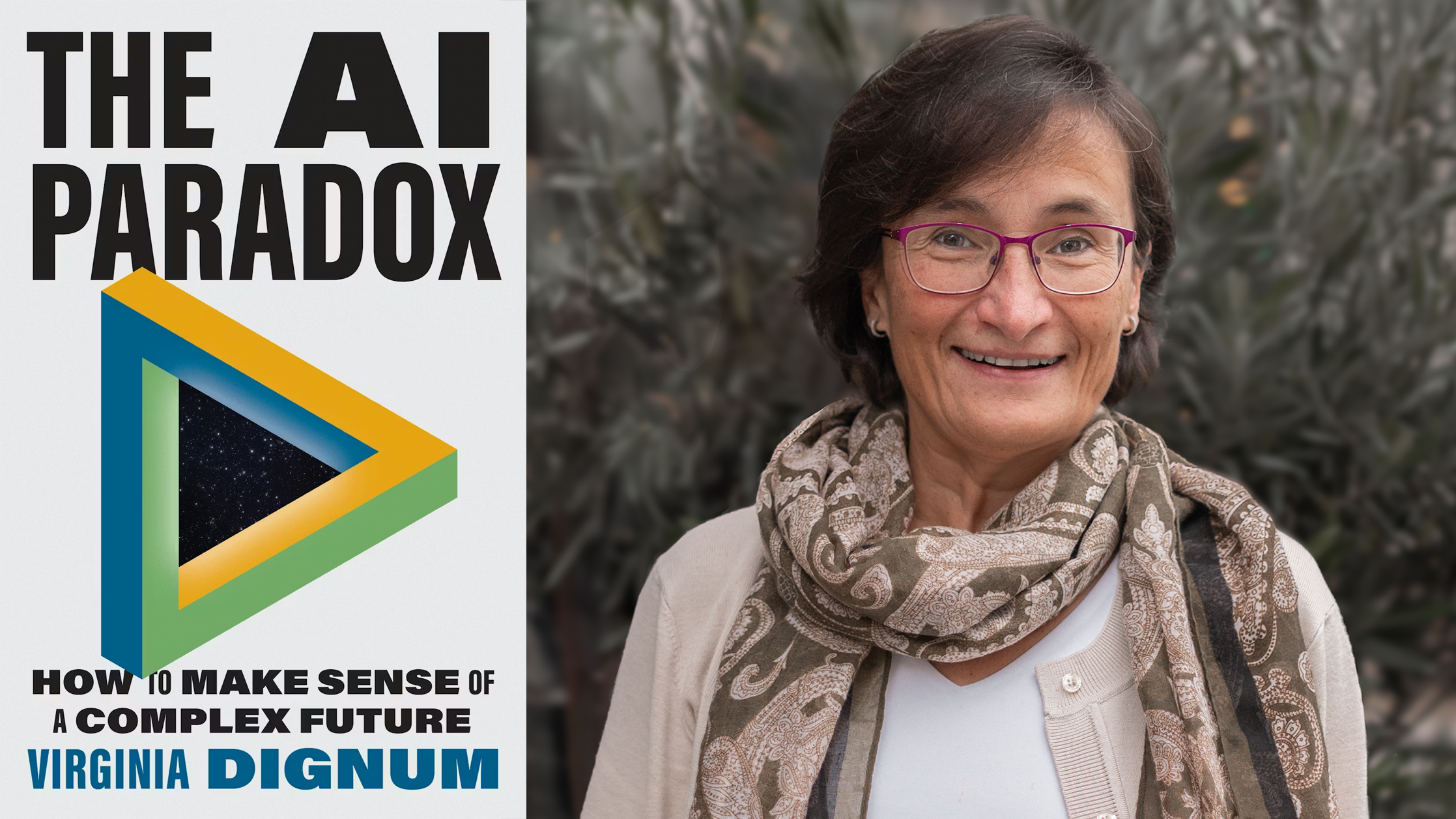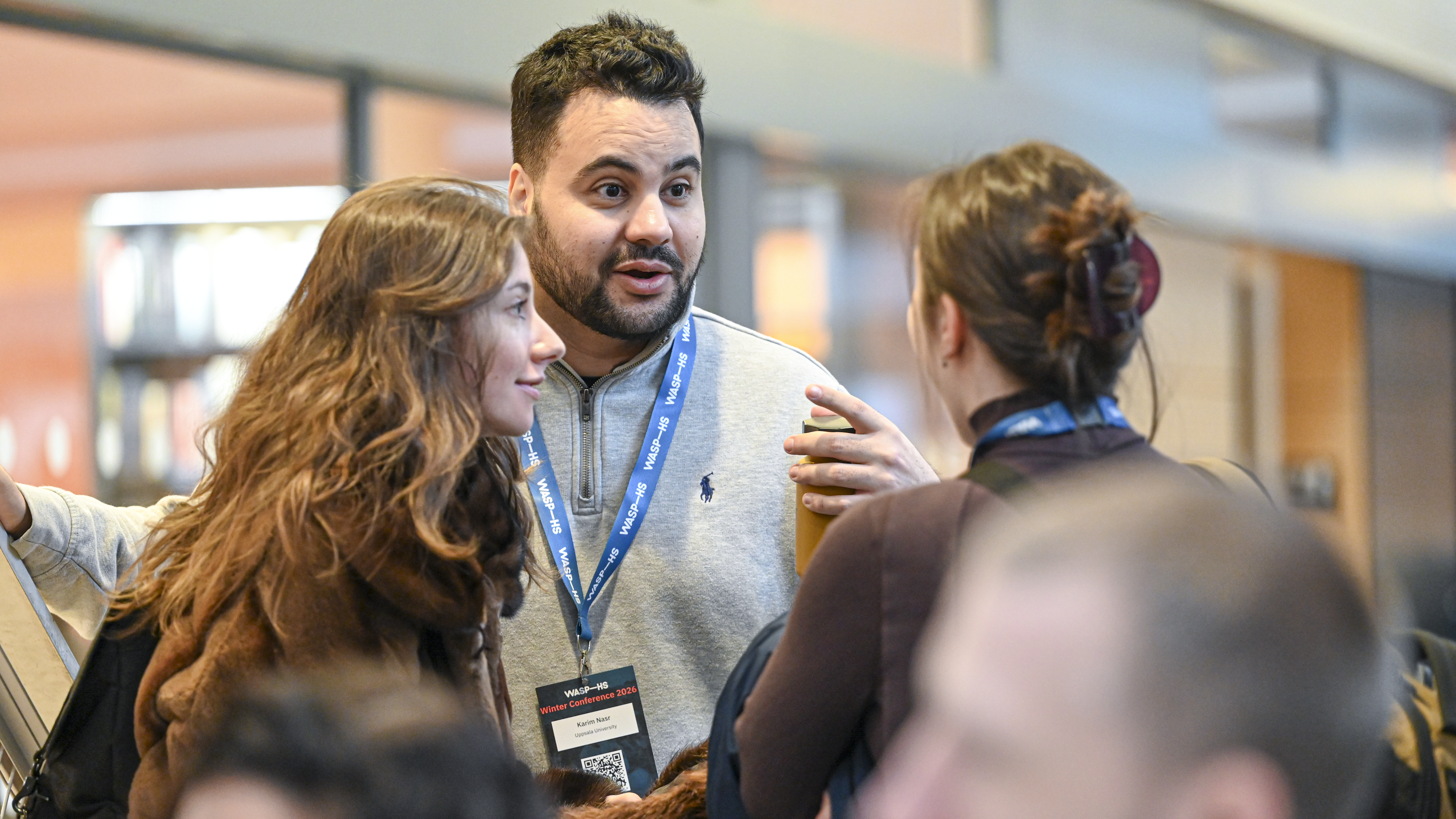Amanda Lagerkvist is a founder of existential media studies and project leader in the WASP-HS program. The Vice-chancellor of Uppsala University has promoted her to full Professor of Media and Communication Studies from 15 September 2020.
“It is humbling”, she says, “and an honor to be given this title at Sweden’s oldest university with such strong traditions, and in a department with such splendid collegial atmosphere.”
She is the Principal Investigator of the Uppsala Informatics and Media Hub for Digital Existence and has worked as a Senior Research Fellow in the Department of Informatics and Media at Uppsala University since 2019.
She was appointed Wallenberg Academy Fellow in 2013 and between 2014 and 2018 she headed the research programme “Existential Terrains: Memory and Meaning in Cultures of Connectivity” at Stockholm University, which researched the existential dimensions of digitalization both empirically and philosophically. With a particular but not exclusive focus on death online, she and the group developed a theoretical framework, focusing on digital-human vulnerabilities of online mourning, commemoration, and the digital afterlife.
As Professor of Media and Communications Studies at Uppsala University, she aims to take existential media studies in new and urgent directions:
“AI and predictive modelling seem to inevitably fill up the human horizon. Media Studies must approach these developments existentially and critically”, she says. “This means probing how technological infrastructures co-condition our being as well as the lived and diversified experiences of being ‘thrown’ into a technologized lifeworld.”
Lagerkvist also seeks to expand the critical receptiveness of the media studies field: “We also need explore the ethos of automation, in order to ask how these technological developments may be steered responsibly.” Emphasizing both the possibilities and limits of technology, Amanda Lagerkvist promises to keep on raising stubborn existential questions in her new role, also in conversation with those who build the systems: “Can these technologies align with – and/or will they potentially transform – deep-seated existential needs and necessities? Should they? Are there datafied answers to all of life’s issues and problems? Should there be?”
Professor Lagerkvist is heading the research project “BioMe: Existential Challenges and Ethical Imperatives of Biometric AI in Everyday Lifeworlds” (2020-2024) funded by WASP-HS programme. She and the group in Uppsala are now studying AI that is already at our fingertips such as face recognition and smart home assistants: “The BioMe project takes on the challenge” she argues, “to produce philosophically motivated and empirically grounded knowledge about how people already live with automation, as well as about how diversity affects such lived experiences.” The group studies experiences in life and at work, of face and voice recognition, as well as of sensory data capture. The goal is to produce essential knowledge for our societies, Lagerkvist emphasizes, “as they will ultimately have to address these developments both ethically and politically.”
Photo: Mikael Wallerstedt.





